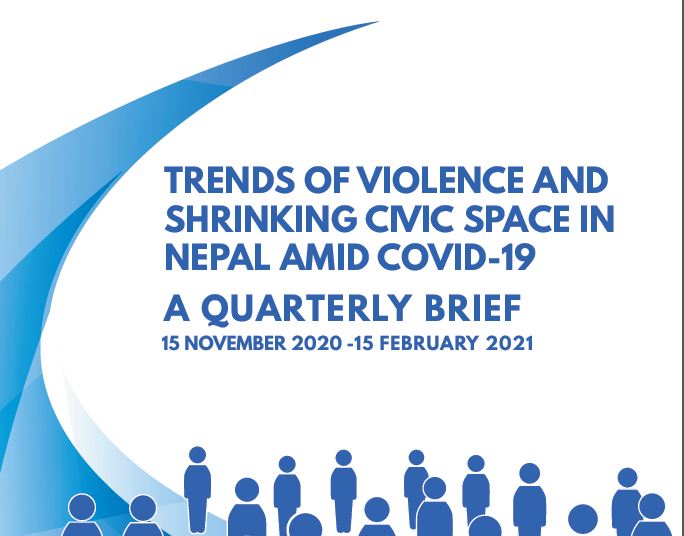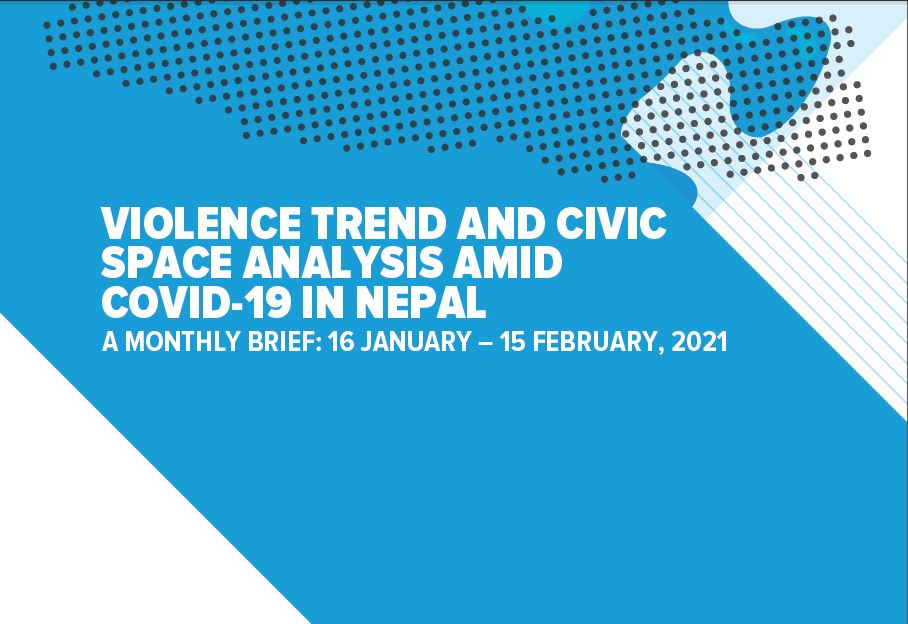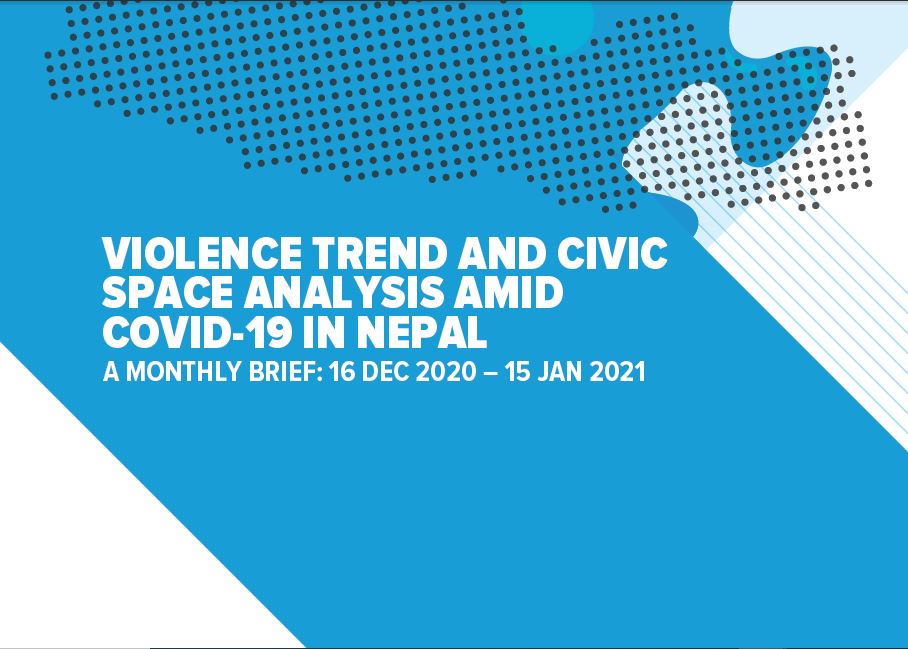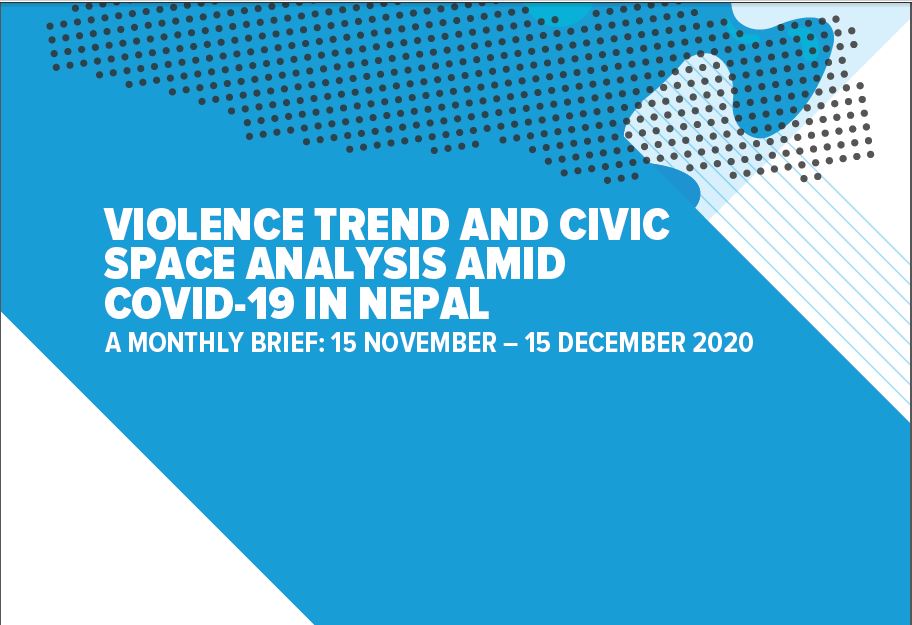Incident Reports
Nepal's government is aggressively pursuing journalists and it could get worse under a new legislation
2019-04-19
Nepal
The detention of and subsequent charges filed against journalist Arjun Giri earlier this week under the Electronic Transaction Act for publishing a story about a local businessman has reignited the conversation about existing and proposed laws in Nepal, which media advocates say could be used to stifle press freedom.
According to Federation of Nepali Journalists, dozens of reporters and editors have been arrested, detained and fined in the last decade since the Electronic Transaction Act, which intends to authenticate banking transactions and discourage cybercrime—and is not related to journalists or media—came into effect in 2006. Authorities have been using the vaguely worded provisions in the law to take action against not just journalistic work published online but also social media posts they deem “improper”.
Last November, a committee that included members of the federation sent the government a recommendation to repeal these sections and also look into the stringent provisions in the new penal code, which could also curtail press freedom. Around the same time, Nepal Police made a commitment at an event organized by Press Council Nepal and the federation that they wouldn’t pursue charges against journalists filed under the electronic transaction act, but would instead send it to the press council.
But the dogged pursuit of complaints by the police, like in Giri’s case, and the steady flow of cases filed at the Kathmandu District Court against journalists for cybercrimes show that authorities continue to target journalists under the electronic transaction act.
Govinda Acharya, the chair of the Federation of Nepali Journalists, says it is frustrating to see the government and police backtrack from their repeated commitment to refrain from using the act against the press.
“The intention of the police is questionable since they frequently use Electronic Transaction Act at the request of politicians or influential businessmen to quash voices critical of power centres,” said Acharya.
Last year, Birgunj-based journalist Ram Saraf learnt it the hard way. He was accused of cybercrime under the Electronic Transaction Act and taken to court for publishing a story online about a family feud of Mohammad Sahabuddin of Parsa, a local leader from the opposition Nepali Congress party. Currently, all cases filed under this law are only heard at Kathmandu District Court, which makes it harder for people like Saraf who reside outside Kathmandu.
In a telephone interview with the Post, Saraf recalled the stressful period and said he felt being treated unfairly throughout the entire episode even though he had published a story backed by evidence.
“This law allows powerful people to pin down journalists if we are critical of them,” said Saraf. “I have been a journalist for over 15 years, and I know what is journalism and what is not.”
Nepal’s steady decline in international press freedom rankings is a reflection of the increasingly stringent laws aimed at tightening free speech and press freedom in the country. According to the latest World Press Freedom Index, published by Reporters Without Borders, Nepal has slipped from 100th to 106th position among 180 countries.
Free speech advocates say authorities have been using provisions in the act as a weapon to curtail freedom of speech online. According to Freedom Forum, a civil liberty group that advocates free speech, four journalists were detained under this law last year.
In 2016, a case was filed at the Supreme Court against section 47 of the Electronic Transaction Act, arguing that it curtailed freedom of expression guaranteed by the constitution. The case came a year after India’s Supreme Court struck down a similar internet censorship law.
The next hearing for the case is slated for May. But since there is another legislation—the IT management bill—in the parliament, which will replace the existing Electronic Transaction Act, lawyers following the case closely say they aren’t very optimistic about the court’s decision.
“I don’t think the court will declare these ambiguous sections unconstitutional because the current act will soon be replaced by the new IT management act,” said advocate Semanta Dahal.
Legal advocates say they are also wary about the proposed provisions in the new IT bill, currently under discussion at the parliament, which leaves plenty of room for interpretation that could curtail freedom of expression online.
The past couple of years has seen an uptick in the laws and regulations to tighten online space worldwide. Democratically elected leaders in Asia have been on the forefront trying to silence dissent, put restrictions on the media, and crack down on individuals who share memes and posts that “offend” politicians. From the Philippines to Cambodia and India, people have been arrested and punished for expressing views online that didn’t sit well with their governments.
If the new IT bill gets passed in its current form, experts say, Nepal will be following the footsteps of countries who have unleashed revenge on dissenting voices by cracking down on internet use.
“While the new IT act is required to address several issues,” said Dahal, “it shouldn’t try to kill the spirit of the constitution by tightening the noose on freedom of expression.”
http://bit.ly/2XcPF5M
Related Reports
HRD Issues / Rautahat
Rautahat correspondent of Himalaya Television assaulted by crusher staff
HRD Issues / Saptari
Saptari journalist on continuous protest demanding protection of press freedom and action against attack on journalist
HRD Issues / Parbat
Arrest permission under cyber crime issued against journalist after raising issue of irregularity over social media
HRD Issues / Sunsari
Journalist issued threat in Sunsari over news report
Related Trend Analysis
Analysis

THE NEPAL PEACE MONITOR ANNUAL REVIEW: 2020
October 25, 2021
Human Trafficking / LGBT+ Rights / GBV / Political / Children’s Rights / Senior Citizens’ Rights / HRD Issues / Human Rights / Interpersonal Violence / Governance / Covid-19 / Civic-Space / PwD





